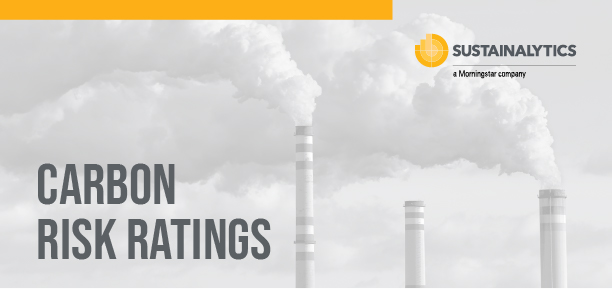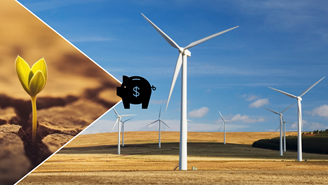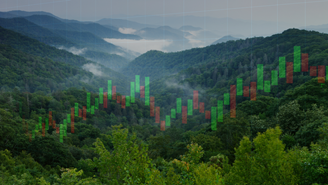Our Carbon Risk Ratings have been discontinued for sale, please refer to our current solution:
As regulatory and industry pressures mount, investors are increasingly asking how to manage carbon risk in their portfolios. Our Carbon Risk Ratings assess a company's carbon risk, driven by the transition to a low-carbon economy. The Carbon offering has both risk and impact data to enable institutional investors to make informed investment decisions regarding climate change.
Latest Insights
Climate Risk Management Among Major Global Banks: Readiness and Gaps
ESG Risks Amid Deregulation Uncertainties: The Case of US Utilities
Climate Transition Funds: Regional Trends, Flows, and Growth Drivers
Our Solutions
Carbon Risk Ratings
Our Carbon Risk Ratings assess a company’s carbon risk, driven by the transition to a low-carbon economy. The ratings are determined by evaluation of a company’s material exposure to and management of carbon issues.
Carbon Solutions Involvement
Sustainalytics examines company involvement in carbon solutions, including renewable energy and low carbon alternatives, such as green transportation, green real estate and energy efficiency
Fossil Fuel Involvement
We assess different types of company involvement in fossil fuels, including thermal coal, oil and gas, oil sands, shale energy, deep water production and Arctic offshore exploration.
Stranded Carbon Assets Research
We evaluate the risk of oil and gas assets becoming non-commercial due to the transition to a low carbon economy. Exposure includes life-cycle carbon intensity of production and proven reserves as well as involvement in high-cost projects.
Engagement Services
Our Engagement Service offering also includes thematic engagements on climate change and voting recommendations on ESG and climate-related topics.
Learn MoreKey Benefits
Breadth and Scope
Coverage includes reported and estimated data on Scope 1, 2 and 3 emissions as well as several types of involvement research, from shale energy to thermal coal.
Comprehensiveness
We provide end-to-end solutions to support security selection, product creation, portfolio management and active ownership
Simplicity & Compatibility
Our forward-looking Carbon Risk Ratings combine multiple, complex forms of carbon research in a simple, decision-useful metric to analyze and report on material carbon risk while allowing for best-in-class and cross-sector comparisons.
Reliability
Sustainalytics is a trusted research provider with well-established and robust research and quality control processes
Use Cases
Security Selection
Evaluate company-level carbon-related risks and opportunities for security selection purposes.
Portfolio Management
Assess the risks and opportunities within your portfolio and provide richer reporting insights.
Support Active Ownership Efforts
Engage with companies by using objective quantitative metrics.
Advance Low-Carbon Investment Strategies
Manage your portfolio exposure to carbon-related risks.
Develop New Investment Solutions
The Task Force on Climate-Related Financial Disclosures (TCFD)
Sustainalytics’ carbon research and services can be used to support several of the TCFD recommendations - with an emphasis on identifying and reporting on forward-looking transition risks, including carbon foot-printing and stranded assets. Several of our Active Ownership Services also focus on climate change and can be used to support the recommendation to engage with portfolio companies.

Why Sustainalytics?
A Single Market Standard
Consistent approach to ESG assessments across the investment spectrum.
Award-Winning Research and Data
Firm recognized as Best ESG Research and Data Provider by Environmental Finance and Investment Week.
End-to-End ESG Solutions
ESG products and services that serve the entire investment value chain.
30 Years of ESG Expertise
800+ ESG research analysts across our global offices.
A Leading SPO Provider
As recognized by Environmental Finance and the Climate Bonds Initiative.

Impact Solutions
Measure, manage and report on the social and environmental impact of your portfolio.
Learn More
Thematic Engagement
Engage on the most challenging ESG issues, from climate change to human capital.
Learn More
ESG Risk Ratings
Take a coherent and consistent approach to assessing financially material ESG risks.
Learn MoreMorningstar® Low Carbon RiskSM Index Family
Exposure to equity investments with Low Carbon Risk scores and limited exposure to fossil fuels.
Morningstar® Global Renewable Energy IndexSM
Exposure to equity investments that generate revenue from renewable energy and green transportation.
Morningstar® Sustainable Environment Index FamilySM
Diversified portfolio of firms with below average exposure to environmental risk.
Morningstar® Sustainability LeadersSM Index Family
Pure exposure to firms with the most exemplary ESG record.





